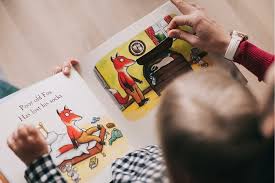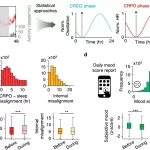A team of U.S. researchers has emphasized the importance of reading aloud to newborns and young children, highlighting its role in fostering nurturing relationships and supporting brain development during a critical early stage. According to an updated policy statement by the American Academy of Pediatrics (AAP), pediatricians are now encouraged to provide parents with guidance and books during well-child visits, beginning from birth.
This marks the first update in AAP recommendations since 2014, reflecting new research that underscores the benefits of shared reading. An accompanying technical report reviewed evidence showing that reading together strengthens relationships, stimulates brain circuitry, and creates early emotional attachments.
“Reading together with young children weaves joyful language and rich interactive moments into the fabric of daily life,” said Dr. Perri Klass, lead author of both the policy statement and the technical report. Klass, a pediatrician and parent, encouraged families to integrate books into their daily routines, especially at bedtime, as a way to build bonds and enhance brain development.
The new policy, published in the journal Pediatrics, is based on the latest research in early childhood development and was thoroughly peer-reviewed before receiving approval from the AAP Board of Directors. The report suggests that turning the pages of high-quality print books, filled with colorful pictures and expressive language, offers children more benefits than passive experiences with electronic devices.
Dr. Dipesh Navsaria, co-author of the technical report and chair of the AAP Council on Early Childhood, emphasized that while touchscreens and digital media may be popular, they typically do not offer the same opportunities for relationship-building as reading aloud does. He stressed the importance of interactive engagement with print books, which can spark conversation and connection between children and their caregivers.
Pediatricians are now advised to encourage shared reading beginning at birth and continuing at least through kindergarten, including, when possible, in neonatal intensive care units (NICUs). They are also encouraged to develop strategies for discussing developmentally appropriate reading activities with parents and modeling techniques that foster positive, language-rich experiences.
Dr. Klass further highlighted the long-term benefits of early reading, noting that reading proficiency by third grade is a significant predictor of high school graduation and future career success. This reinforces the importance of cultivating reading habits in early childhood, not just for brain development but for lifelong academic and personal achievement.
With this new guidance, the AAP aims to promote literacy and early childhood development, supporting families in building meaningful connections with their children through the simple yet powerful act of reading aloud.











